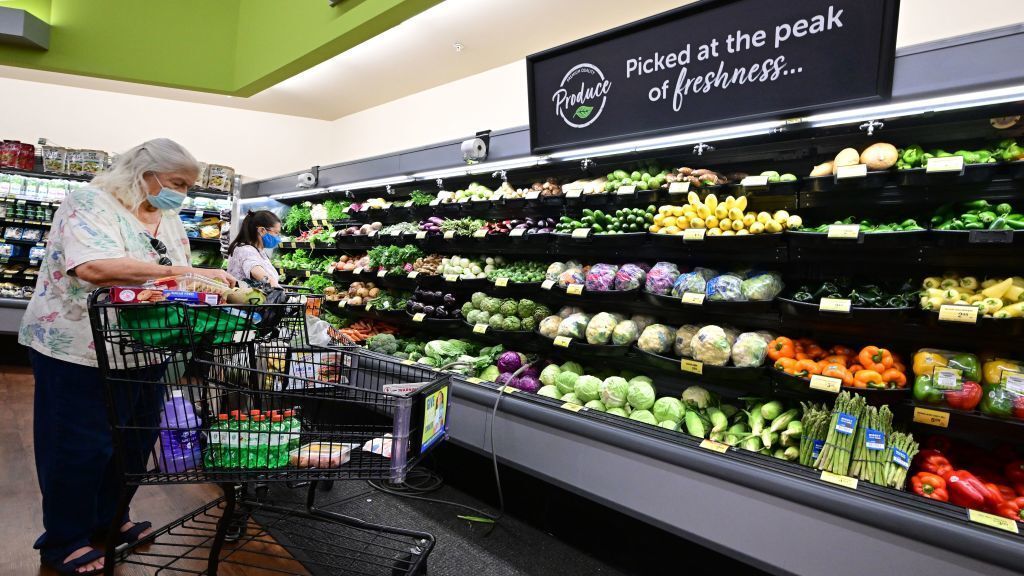- Treat food as medicine
Can't wait to pay $1800 for an orange.
- Focus on quality of calories, not just quantity
They're just gonna fuck up SNAP so everyone can only buy Prime Fresh™ Veggie Straws, DANNON™ Greek Yogurt, and Planters™ nuts
- Expand access to dietary and lifestyle counseling
Congratulations, citizen. Your yearly doctor's appointment is now a Zoom meeting with a diet counselor.
- Support food entrepreneurs
Bruh.
- Increase the number of new farmers growing healthy foods using regenerative farming techniques
Galaxy brain, rotating the subsidies on a yearly basis, so every year the only vegetables grown are Corn, Rice, Soybeans, and Wheat. Barely functioning nutrient cycling.
- Make school meals free for all students
:shrek-troll: Like that's ever gonna happen. What a load of *flush*
- Establish a federal 'food czar'
Clearly we need more government czars to promote synergy.



At least they're finally admitting it's not as simple as "calories in calories out bro". The type of food you're consuming (protein, carbs, fats) also matters a ton for body composition. It's how bodybuilders can have a BMI that's technically overweight or obese, while having a low body fat percentage. Because they exercise to stimulate the muscles (most important), and eat like 150+g of protein a day. They also take anabolic steroids but still, there are plenty of natural/ no steriod bodybuilders that have an "overweight" BMI of like 26 or 27 but low body fat percentage.
Calories matter a ton, and most Americans probably need to eat less calories. And obviously our bodies don't break the second law of thermodynamics, if you eat more you'll gain weight. But it's not just that.
Another part that often goes under mentioned is that it's much much easier to eat less calories when your food is less calorie dense and more satiating. Try eating 200 calories of strawberries in a sitting without feeling sick of them and wanting to throw up. Meanwhile you can eat 600 calories of chips watching TV and barely notice.
Long ago you had to eat the plant to get at the sugars and yummy bits, now we just extract it and make it into tiny treats that simulate food.
Yes this is very true.
So my lungs are fucked up from COVID still, so I live a pretty sedentary life style (even more so than before the pandrmic), should I just replace most of my diet with vegetables and like, maybe a little fish as well as just eating less to stay a little bit more healthy? I was planning on biking everywhere but until my lungs recover (if they ever do) I'm not sure if I can handle that
It depends on your goals, if you want to lose weight, or gain muscle, etc. Most important thing is finding a diet, with regards to the type of food, the amount of calories, macronutrient split, that fits your goals and that you can stick to. If a healthy
pescatarian diet with a reasonable calorie deficit is that for you, then go do it.
Just don't do anything too extreme like a super low carb or fat diet, or a really massive calorie deficit. That's where people go wrong.
I dont particularly care about my appearance, I just feel that lugging around less would be better for when I actually have to do cardio-like activities.
Yeah then it sounds like a good idea, just make sure you don't become deficient in any micronutrients and stick within reasonable macronutrient splits.
Go ahead my blue bug!
Thank you based aaaaaaaadjsf
:rat-salute-2:
The correct answer is to figure out how many calories you actually need, and then mostly eating that many calories just fruit, vegetables and a bit of meat. Then get as much exercise as you can fit in edgewise.
For what it's worth, I've found intermittent fasting to be very effective at both increasing health and losing weight. The discussion usually centers around amount of calories and what macro and and micronutrients you're getting. But timing is a very important piece of the puzzle in how your body ends up storing and using those nutrients and burning carbs or fat for energy. You can get vastly different results eating the same stuff depending on if you have it with 3 meals a day interspersed with snacks or if you eat for only (for example) 6 out of the 24 hours in a day and fast for the rest.
It sounds hard, and can be at first, but I've found it's relatively easy to adapt to. Your fat to carb ratio also makes a big difference with this too.